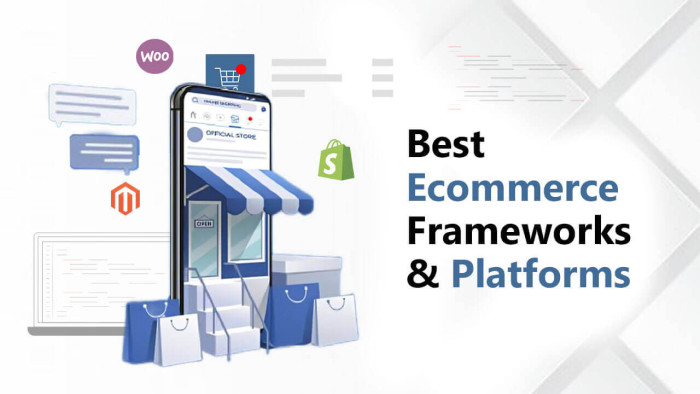
The Best eCommerce Frameworks For Online Selling
- 18-08-24
In today's digital age, having a robust eCommerce platform is crucial for businesses looking to succeed in online selling. With numerous options available, choosing the right framework can be overwhelming. This article will guide you through some of the best eCommerce frameworks available, highlighting their key features and what makes them stand out.
What is an eCommerce Framework?
An eCommerce framework is a software platform that allows businesses to build and manage online stores. It provides the necessary tools and infrastructure to create a seamless shopping experience, from product listings to payment processing. These frameworks are designed to handle everything from website design to backend operations, ensuring that your online store runs smoothly.
eCommerce Framework Categories
eCommerce frameworks generally fall into two categories: open-source and SaaS (Software as a Service).
1. Open-Source Frameworks: These are highly customizable and allow developers to modify the code to suit specific needs. They are ideal for businesses with unique requirements but often require more technical expertise to set up and maintain.
2. SaaS Frameworks: These are hosted solutions where the provider takes care of the technical aspects. They are easier to set up and maintain, making them a popular choice for small to medium-sized businesses. However, customization options might be more limited compared to open-source platforms.
Our Favorite eCommerce Frameworks
BigCommerce
BigCommerce is a leading SaaS eCommerce platform known for its scalability and extensive features. It caters to businesses of all sizes, offering tools that can help boost sales and streamline operations.
Integrated Sales Features
BigCommerce comes with built-in sales features like discounts, promotions, and abandoned cart recovery. These tools help increase conversion rates and ensure that you maximize your sales potential.
No Transaction Fees
Unlike many other platforms, BigCommerce does not charge transaction fees on your sales. This means that you get to keep more of your profits, making it a cost-effective choice for businesses.
Product Variations
With BigCommerce, you can create multiple product variations, such as different sizes, colors, or materials, all under a single product listing. This feature makes it easier for customers to find what they're looking for without navigating through multiple pages.
Shopify
Shopify is another popular SaaS platform known for its ease of use and a vast ecosystem of apps. It’s a great choice for businesses looking for a straightforward solution to start selling online quickly.
Themes & Templates
Shopify offers a wide range of professionally designed themes and templates, making creating a visually appealing online store easy. Whether you’re selling fashion, electronics, or home goods, there’s a theme that fits your brand.
Vast App Integration Library
One of Shopify's biggest strengths is its extensive app integration library. With thousands of apps available, you can easily add new features and functionalities to your store, from email marketing tools to inventory management systems.
User Interface
Shopify’s user interface is designed with simplicity in mind. Even if you’re not tech-savvy, you can easily navigate the platform, manage products, and fulfill orders. The intuitive dashboard makes running your online store a breeze.
Conclusion
Choosing the right eCommerce framework depends on your business needs, budget, and technical expertise. Both BigCommerce and Shopify offer powerful tools to help you succeed in online selling. BigCommerce is a great option for businesses looking for scalability without transaction fees, while Shopify provides a user-friendly experience with a wide range of customizable options. By understanding the features of each platform, you can make an informed decision that aligns with your business goals.






